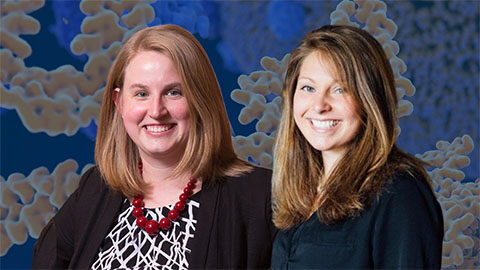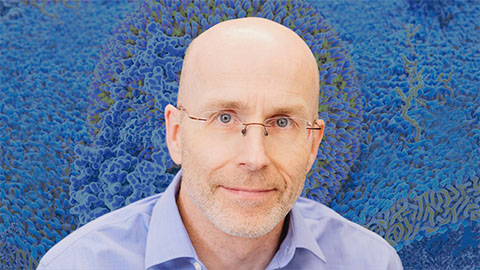Awards for Buchner, Jarvis and Ten Hagen
Buchner wins Warburg Medal
The German Society for Biochemistry and Molecular Biology, or GBM, has awarded Johannes Buchner the Otto Warburg Medal. This award is given to outstanding natural scientists for their lifetime achievements. The society is honoring Buchner for his fundamental contributions to protein structure formation and the role of chaperones.

Buchner is a professor of biotechnology at the Technical University of Munich. His research focuses on principles of protein structure formation and the cellular machinery of protein folding. He has made seminal contributions in his study of heat shock proteins, including Hsp90. In addition, Buchner uncovered the cellular quality control mechanisms involved in antibody folding and assembly. He has won many awards such as the Hans Neurath Prize of the Protein Society and is a member of the National Academy of Sciences Leopoldina and the Bavarian Academy of Sciences.
“Johannes Buchner is one of the world's leading researchers in the field of protein structure formation, a central topic in biochemistry and cell biology,” a GBM press release stated. “He is a pioneer in the discovery and study of molecular chaperones and has contributed decisively to progress in this field.”
Buchner will receive the award and a 25,000-euro prize at the 75th Mosbacher Kolloquium of the GBM in March.
Jarvis and Ten Hagen win glycobiology award


The Society for Glycobiology has named Donald Jarvis and Kelly Ten Hagen recipients of the Rosalind Kornfeld Award for Lifetime Achievement in Glycobiology. This award is presented to scientists who have, over their professional lifetimes, made significant contributions with important impact on the field.
Ten Hagen is a senior investigator, chief of the Developmental Glycobiology Section and associate scientific director of the National Institute of Dental and Craniofacial Research, National Institutes of Health. Her research studies how sugar addition (O-glycosylation) is regulated and how it influences basic biological processes. She is currently investigating the role O-glycosylation plays in secretion, secretory vesicle formation, cell adhesion and cell signaling.
Ten Hagen is a member the American Society for Biochemistry and Molecular Biology Council, was a founding member of the ASBMB Women in Biochemistry and Molecular Biology Committee and was named an ASBMB fellow in 2023. Among her honors are the NIH Equity, Diversity and Inclusion Award and the NIH Director’s Award. She is also a fellow of the American Association for the Advancement of Science.
Jarvis is a professor of molecular biology at the University of Wyoming. His laboratory focuses on glycoprotein biosynthesis in the baculovirus-insect cell system. His work engineering this system led him to start a biotechnology company, GlycoBac, which is focused on efforts to refine and commercialize this technology.
Jarvis has coauthored 25 book chapters and reviews as well as nearly 100 scientific papers. He has received many honors from UW including two distinguished faculty awards. He was elected an AAAS fellow in 2023.
Enjoy reading ASBMB Today?
Become a member to receive the print edition four times a year and the digital edition monthly.
Learn moreGet the latest from ASBMB Today
Enter your email address, and we’ll send you a weekly email with recent articles, interviews and more.
Latest in People
People highlights or most popular articles

Redefining lipid biology from droplets to ferroptosis
James Olzmann will receive the ASBMB Avanti Award in Lipids at the ASBMB Annual Meeting, March 7–10, just outside of Washington, D.C.

Creating change in biochemistry education
Pamela Mertz will receive the ASBMB William C. Rose Award for Exemplary Contributions to Education at the ASBMB Annual Meeting, March 7-10 in Washington, D.C.

Amacher, Pollock named Henry Dreyfus scholars
They were recognized for their outstanding research scholarship and a deep commitment to undergraduate education and each received $75,000 to fund their research.

Trainee mentorship as immortality
Suzanne Barbour will receive the ASBMB Sustained Leadership Award at the ASBMB Annual Meeting, March 7-10 in Washington, D.C.

Life in four dimensions: When biology outpaces the brain
Nobel laureate Eric Betzig will discuss his research on information transfer in biology from proteins to organisms at the 2026 ASBMB Annual Meeting.

Fasting, fat and the molecular switches that keep us alive
Nutritional biochemist and JLR AE Sander Kersten has spent decades uncovering how the body adapts to fasting. His discoveries on lipid metabolism and gene regulation reveal how our ancient survival mechanisms may hold keys to modern metabolic health.
